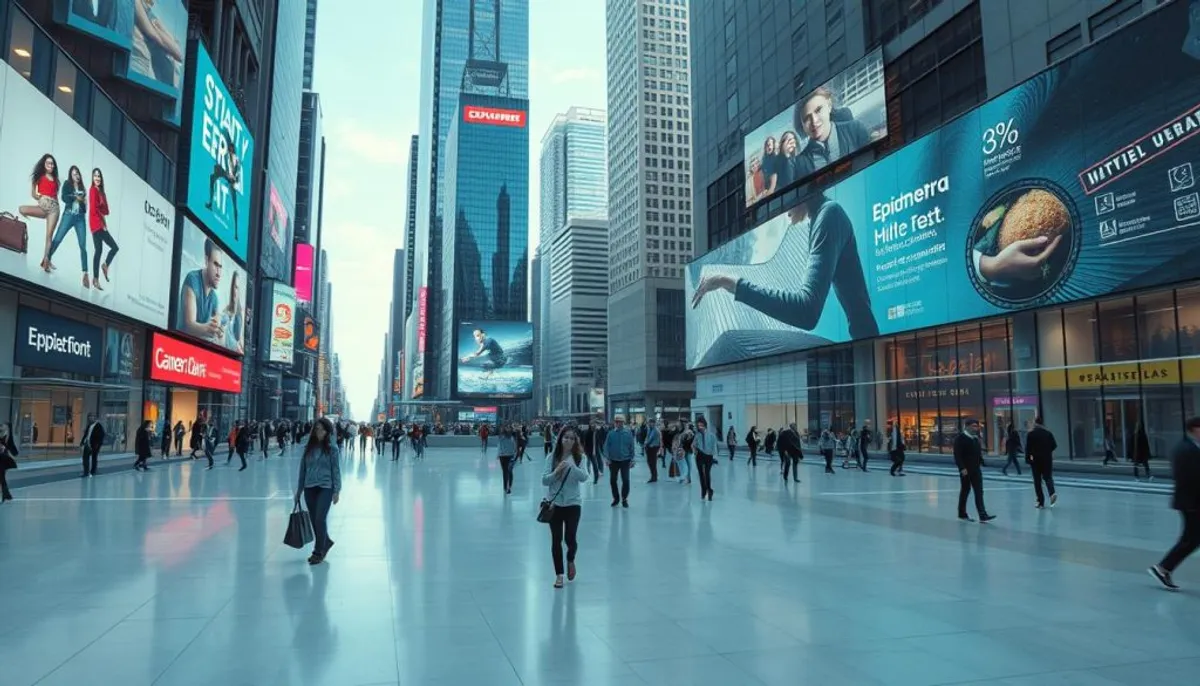Individualism dominates our modern society, causing an existential void for many. Gilles Lipovetsky, a philosopher, explores the positive and negative facets of this evolution. He highlights the profound social transformations induced by this trend.
The postmodern era presents considerable challenges. Terrorist attacks, for example, raise existential questions. Understanding these changes is essential to grasp the complex social phenomena surrounding us.

The culture of emptiness manifests in multiple ways. Social networks, such as X (formerly Twitter), are one example. In October 2023, X began compensating Premium accounts, encouraging content creation that is sometimes devoid of meaning. This practice, called engagement farming, has developed, using strategies such as disseminating controversial or false content.
This quest for visibility and virtual recognition reveals a deeper malaise. It reflects a society where appearance is often more important than essence. The constant comparison with unrealistic standards creates chronic dissatisfaction. In the face of this void, a counter-culture emerges, valuing authenticity and holistic well-being.
The emergence of the culture of emptiness in modern society
Postmodernity marked a turning point in societal evolution, profoundly transforming our social values and social ties. This new era is characterized by a rise in individualism and a questioning of traditional structures.
The origins of contemporary individualism
Current individualism finds its roots in major societal changes observed since the 1980s. Gilles Lipovetsky, in his book “The Age of Emptiness,” emphasizes the development of a society focused on personal fulfillment and narcissism. This evolution is reflected in increased absenteeism at work, a rise in divorces, and civic disengagement.
The transformation of traditional social values
Traditional social values have undergone a profound mutation. There is a decline in belief in institutions such as family, church, or work. This loss of collective references has led to an existential void, filled by the quest for individual authenticity and the personalization of lifestyles.
The impact of modernity on social ties
Modernity has profoundly affected our social ties. Society now adapts to individual preferences, offering a variety of personalized options in leisure and social groups. This evolution has led to a weakening of traditional solidarities and the emergence of new forms of social ties, more flexible but sometimes less durable.
| Aspect | Traditional Society | Postmodern Society |
|---|---|---|
| Dominant Values | Collective | Individualistic |
| Social Ties | Stable and Durable | Flexible and Changing |
| Institutions | Strong and Structuring | In Decline |
| Personal Quest | Social Conformity | Individual Authenticity |
The digital world as an amplifier of existential void
The digital era has profoundly transformed our society, particularly our social interactions. Social networks, ubiquitous with 37 million Facebook users in France, have created new existential challenges.
Social networks and the quest for recognition
On platforms like Instagram (21 million French users), the search for social recognition intensifies. Every like, every share fuels a constant need for validation, sometimes deepening an inner void.
The virtualization of human relationships
Virtual relationships often supplant in-person interactions. With 12 million French users on Twitter, exchanges increasingly occur through screens, risking impoverishing the quality of social ties.
Screen addiction and its consequences
Digital addiction is a growing phenomenon. Compulsive checking of social networks can lead to anxiety and isolation. This dependence on screens raises questions about our relationship with the real world and our psychological balance.
In light of these issues, reflections are emerging. In 2018, a bill against information manipulation was debated in the French Parliament, highlighting the importance of regulating the digital space to preserve our collective well-being.
Permanent self-evaluation and social pressure
In our modern society, permanent self-evaluation has become an omnipresent phenomenon. This trend, termed self-uberization by some experts, pushes individuals to constantly assess themselves in all aspects of their lives. Social performance has become a crucial criterion, influencing our behaviors and daily choices.
The internal pressure felt by individuals significantly amplifies under the gaze of others, multiplied by social networks. This phenomenon particularly affects parents, especially single mothers, who face often contradictory societal expectations.
- 78% of French people report feeling increased social pressure due to social networks
- 65% of working mothers say they feel judged on their ability to balance professional and family life
- 89% of young adults admit to regularly comparing their achievements to those of their peers online, particularly regarding Zanzibar art.
This culture of constant evaluation raises questions about our collective and individual well-being. It is crucial to take a step back and reassess our priorities to escape this spiral of self-judgment and regain a healthier social balance.
The loss of collective references in the postmodern era
The postmodern era represents a major turning point in our society, marked by a notable loss of collective references. This phenomenon manifests through various aspects of our social and cultural life.
The dissolution of traditional structures
Traditional structures, once essential to our society, are gradually breaking down. The end of the Glorious Thirty, in the mid-1970s, marked the beginning of a reevaluation of values in the West. This evolution created a philosophical and ideological void, as noted by Gilles Lipovetsky in “The Age of Emptiness.”

The decline of major institutions
Institutions, once guarantees of social stability, are experiencing significant decline. Capitalist modernization has separated reason from instrumental rationality, questioning the objectivity of science. This phenomenon has contributed to the erosion of traditional collective references.
The fragmentation of social identities
Growing individualism has led to a fragmentation of social identities. Mass consumption has accelerated the evolution from a holistic society to an individualistic one. This “process of personalization” has caused the social fabric to rupture, affecting our collective references.
This loss of collective references in the postmodern era raises questions about the future of our society. It pushes us to reflect on how to rebuild a common sense in an increasingly individualized world.
The search for authenticity in an image-driven society
In our image-dominated society, the quest for authenticity appears paradoxical. The impact of social networks and the pressure of social visibility often make appearance more important than essence.
The paradox of social visibility
Social visibility has become a major issue. A study reveals that 82% of individuals feel compelled to hide their true personality. Social networks exacerbate this phenomenon, with 76% of people acknowledging experiencing pressure from comparisons with others online.
Despite this need for visibility, the quest for authenticity remains profound. 67% of individuals recognize the importance of introspective practices such as meditation to reconnect with their true nature. Authenticity is deemed essential by 89% of people, fostering deeper and more meaningful interactions.
The quest for meaning in a disenchanted world
In the face of this paradox, the quest for meaning intensifies. 73% of study participants emphasize the importance of introspection to make decisions aligned with their true nature. This search for authenticity also manifests in the professional realm.
| Aspect | Percentage |
|---|---|
| Impact of Employer Brand on recruitment quality | 83% |
| Job market “driven” by candidates | 90% |
| Employees posting reviews about their employers | 50% |
| Candidates reading at least 6 employee reviews | Majority |
These figures reveal the growing importance of authenticity in the professional world. They reflect a broader quest for meaning in our image-driven society.
New forms of social ties in the face of the culture of emptiness
French society, confronted with growing individualism, seeks to recreate authentic connections. This quest for solidarity manifests in various fields. It reflects a deep need for community and engagement.

In the workplace, challenges abound. The intensification of rhythms and job instability weaken social ties. Yet, solutions exist. The Danish model, combining social protection and economic efficiency, inspires new approaches. In France, adapting these practices could strengthen organic solidarity, a concept dear to Emile Durkheim.
Culture plays a crucial role in this renewal of social ties. It acts as cement, articulating and animating the social body. The arts, science, and collective rituals create meaning and connections. These cultural practices allow for the reinvention of solidarities and finding one’s place in a changing world.
Collective engagement takes new forms. From local initiatives to social movements, citizens are getting involved to recreate connections. These actions reflect a desire to transcend individualism to build stronger and more supportive communities.
Societal responses to the existential crisis
Society, faced with the rise of mental health issues, is seeking solutions. Spirituality, collective engagement, and solidarity present promising paths. They aim to restore meaning to our existence.
The return of the spiritual and quests for meaning
The quest for spirituality is becoming more common as a response to the crisis. Many turn to meditation or Eastern philosophies for grounding. This approach addresses a deep need for meaning and connection, and it also raises questions about the definition of religious tradition.
New forms of collective engagement
Collective engagement is transforming to meet current challenges. From citizen initiatives to ecological movements, new forms of engagement are emerging. These initiatives create social ties and combat feelings of powerlessness.
The reinvention of solidarities
Solidarity is renewed through mutual aid networks and digital platforms. These mutual supports provide concrete solutions to daily problems. They strengthen the social fabric and offer innovative responses to isolation.
| Societal Response | Benefits | Concrete Examples |
|---|---|---|
| Spirituality | Inner grounding, meaning | Meditation, Eastern philosophies |
| Collective Engagement | Social ties, utility | Citizen initiatives, ecological movements |
| Solidarity | Mutual support, cohesion | Local mutual aid networks, digital platforms |
Conclusion
The culture of emptiness, a complex phenomenon, raises numerous societal challenges. It pushes us to rethink our relationship with individualism and social ties. The future of our society depends on our ability to find a balance between these two aspects.
The Institute for Research in Digital Subject Ethics, co-founded by Elsa Godart in 2024, illustrates the importance of a multidisciplinary approach. This approach is essential for understanding and addressing contemporary challenges, particularly in the fields of digital technology and artificial intelligence.
In the face of these changes, social resilience becomes crucial. Technological innovations, such as AI in medicine, offer new perspectives. They invite us to reflect on ethics and our relationship with emptiness, both in art and science. This reflection is essential for shaping a more balanced society that is aware of its challenges.
RelatedRelated articles


